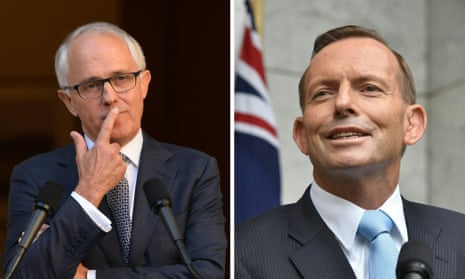There was much media attention over the Easter break concerning Tony Abbott. Is he simply out to undermine Turnbull at every turn, and at every opportunity? Is he a wrecker? Or can Malcolm somehow give him – and have him accept – a constructive role in the election campaign?
The situation is as much a test for Turnbull as it is for Abbott. Can Turnbull build an effective election campaign team, or will he barge on, one captain’s pick after another, as has been his custom? Can Abbott actually be a team player, or will he simply disagree with whatever Turnbull does, hoping to create the circumstances where he can do a Lazarus?
Clearly, if both stay true to form, this would ensure the worst possible outcome for the Turnbull government and collectively they would give Shorten his best chance.
Yet if commonsense were to prevail, they could combine to be a most effective campaigning force, possibly annihilating Shorten and his opposition.
How? Turnbull would need to begin by being willing to acknowledge the achievements of the Abbott government, – indeed, not just acknowledge, but applaud them. Turnbull is notorious for not listening to anyone, let alone conceding that others may have actually done something praiseworthy.
It is this recognition that Abbott craves more than just about anything else.
Turnbull would also have to admit that he needed the support of a unified team if he is to win. This will be tough for such a divisive character. Yet it is the key to getting Abbott and his cohorts on side, and maybe the key to winning.
It would be so easy for Shorten to argue, as Hawke did in the 1990 campaign against Peacock in the days of the Howard/Peacock contests, that “disunity is death in politics”, and “if you can’t govern yourselves, you can’t govern the country”.
Specifically, Turnbull should recognise Abbott’s unquestioned negative campaigning capabilities, and give him a role where negativity will matter most.
This, I suggest, would see Abbott given responsibility for the attack on union governance – everything from the Building and Construction Commission, through the excesses of union bosses as exemplified by Craig Thompson’s abuse of the privilege of running the Health Services Union, through to questions about the governance of union superannuation funds.
Abbott could shake just about any union tree and embarrassing issues would fall out.
He could then easily extrapolate this to highlight the dominant role played by unions, at almost every level, in controlling Shorten, the ALP and its policy platforms. While Shorten and his colleagues would undoubtedly try to run another “work choices” campaign, it would now be easy for Abbott to tag this as simply yet another baseless scare campaign, designed to distract attention from union abuse, and to downplay the significance of their control over the ALP.
The ALP hasn’t got a chance of forming a long-term, sustainable government until it formally breaks its ties with the union movement and demonstrates a capacity to formulate policy without a union imprimatur. Successive Labor leaders have failed to achieve this, so the anachronism survives, leaving a very real opportunity for somebody with the negativity talents of Abbott.
Realistically, can Turnbull do this? He lost the leadership last time simply because he couldn’t manage his backbench, overlaid by a couple of his most significant (and failed) captain’s calls that questioned his judgment, specifically his mishandling of the Godwin Grech emails.
On the second coming of his leadership, the only hesitant question asked was, “just how much has Malcolm learned?”.
Managing Abbott will answer that question, and may indeed determine the fate of the Turnbull government: call on Abbott to demonstrate loyalty, and give some ground in doing so.
